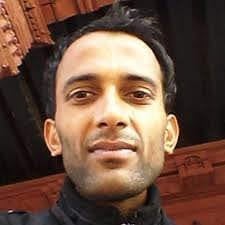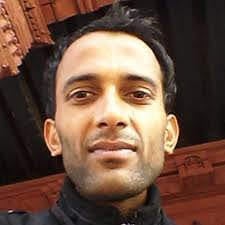Beauty Pageants: Toxic Patriarchal Myths

The idea of Beauty Pageant has drawn huge controversy in today’s world. Some take it as “a celebration of feminism” while others take it as purely commercial project that has nothing to do with women empowerment. There is no universal definition of beauty. Trying to find the ubiquitous consensus on the definition of what makes a person beautiful is in itself anachronistic and unenlightening.
Few years back there were news of an aspiring model being drugged and raped in a hotel room in Kathmandu on the pretext of a beauty pageant. It led to immense outpouring of rage from all quarters of the society. Protests were organized in major cities of Nepal demanding thorough investigation and justice for the survivor. Protestors demanded the revoking of statute of limitation to initiate legal proceedings against the accused. Even The House of Representatives joined the bandwagon and issued a directive to the government for the thorough investigation. The police, yielding to the pressure from wide spectrums of the society, arrested the accused, organizer of one of the beauty pageants in Nepal. The survivor was a minor (16) when she was first raped. She also called out Malvika Subba, a former Miss Nepal and a media personality, for turning a deaf ear and not providing any support when the survivor needed it the most.
This whole story stirred a greater debate in Nepali intellectual discourse – are beauty pageants the medium of female empowerment or are they just a platform for the objectification of female body? The question still holds ground as the general populace is still at odds with one another regarding the relevance of beauty pageants. As the finale of ‘Miss Nepal 2024’ is being hosted today in a grand fashion, this article tries to debunk some myths about beauty pageants and how they have been valorized in the veneer of feminism and modernity.
Sexual Objectification
The beauty pageant since its inception is one of the most popular events followed by millions of people worldwide. This centuries-old tradition is becoming more and more popular in all parts of the world despite the outcry from people that it reinforces stereotypical beauty standards. The narcissistic definition of beauty promoted by beauty pageants has brainwashed young girls resulting in the refusal for accepting their body as it is and promoting unrealistic beauty parameters. Young girls participate in the competition with a hope that they can showcase their beauty and get fame and riches. But what they fail to understand is it is just a patriarchal ploy to objectify female body and get pleasure through an amorous glance. The beauty pageants are neither about empowering women nor are they about boosting up confidence and harnessing self-esteem. They are about displaying female beauty as an object on sale and the male gaze decides on who is the most beautiful.
“Beauty lies in the eyes of beholder,” goes the old adage. The concept of beauty can never be absolute. There is no ubiquitous definition of what makes a person beautiful. Some focus on shape and size of the body while others focus on personality traits like morality, honesty, faithfulness etc. Someone considered beautiful in one culture may not necessarily be counted as beautiful in another. But, the organizers of beauty pageants do not take into account that beauty is a relative concept. They try to impose – and mostly they have been successful - in establishing the notion that unmarked skin, unblemished complexion, perfect coiffure, coruscated dress and heavy makeup makes a female beautiful. This Eurocentric standard of beauty disregards the heterogeneity in the perception of beauty in different cultures.
Beauty pageants spread the false idea that external appearance distinguishes a beautiful person from the ugly. Young girls take it as true and start developing inferiority complex for not looking a certain way. The separate titles for ‘perfect body’, ‘beautiful hair’, ‘evening gown’, and ‘swimsuit’ etc. in beauty pageants are the categories which aid in the sexualization of the participants in order to please the male viewers. This points towards the patriarchal ideology of ‘male gaze’ which takes female body as something to be consumed by males. This whole belief system insinuates objectification of female bodies.
Violation of Bodily Autonomy
United Nations Fund for Population Activities (UNFPA) defines bodily autonomy as, “[...] the power and agency to make choices over our bodies and future, without violence or coercion.” This definition of bodily autonomy refers to an individual’s sovereign right and authority over their bodies. It is a fundamental human right that focuses on individual’s inviolable right to use their body the way they like without the fear of assault and mockery.
If we look into beauty pageants organized in any part of the world we find one common feature – violation of female’s bodily autonomy. The participants and winners of the pageants bear the brunt of society’s pseudo-morality. Winners have been stripped off their titles for the reasons that sound funny or weird in a civilized world. For example, Marjorie Wallace who was crowned “Miss World” in 1973 had her title stripped off for having affairs with multiple boyfriends. It clearly violated her bodily autonomy as the organizer tried to dictate the terms of her integrity. The organizers, in the facade of morality, denied Ms Wallace her personal right to choose any number of people she liked to have intimate relationship. Similarly, Lucy Maino, 2019 Miss Papua New Guinea, had her beauty crown rescinded after she posted a video on TikTok of herself twerking. This speaks volume about how much personal restrictions the organizers try to impose on the contestants. Maino later criticized the decision and said that dance was a form of healing and self-expression for her. How can we believe that beauty pageants promote women’s dignity and self-respect when a girl is stripped of her title just because she dances to a song and posts it online? The whole episode stemmed from a belief deeply embedded in patriarchal mind that it is the men who have to decide how women eat, play, dress, dance or even laugh. This tendency to control anything women does is a clear sign that beauty pageants organizers do not act what they preach – empowerment and confidence to women.
Other instances of violation of bodily autonomy can be seen in the requirements related to age, marital status and motherhood status. The participant has to be under certain age limit, has to be single and she should not have given birth. The criteria is tell-tale of the most corrupt, despicable, and objectionable manifestation of beauty standards. This requirement gives impetus to the claim that beauty contests are nothing but a platform to satiate male gaze.
Exclusionary, Thus Discriminatory
The beauty pageants are exclusionary too. The organizers, in most of the countries, exclude Trans people from the competition. The requirement of ‘natural-born female’ connotes apparent transphobia ingrained in the organizers’ mindset. A competition that reeks off perceived prejudices against sexual minorities is not only exclusionary; it is also full of bigotry. Beauty pageants, the so-called ‘biological female empowerment’ projects, are in fact platforms for spewing anti-Trans narratives. The project built upon hatred and exclusion can never be a project of equality and pride. Beauty is a cosmetic patriarchal myth and beauty pageants are just an attempt to validate objectification of women in the facade of “beauty with brains” narrative. Thus, they must be banned.
X:@binoddhakal75


Leave Comment